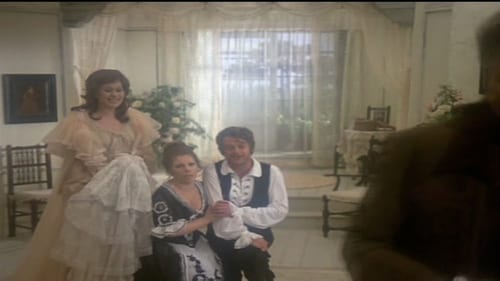Paolo Montarsolo
Nascimento : 1925-03-16, Portici, Campania, Italy
Morte : 2006-08-31

Geronte di Ravoir
Live from Glyndebourne 1997

Don Alfonso
Nikolaus Harnoncourt conducts the Wiener Philharmoniker in this filmed studio performance of Mozart's opera recorded in 1988.

Mustafà
L'ITALIANA IN ALGERI is an operatic dramma giocoso in two acts by Gioachino Rossini to an Italian libretto by Angelo Anelli. Rossini composed L'italiana in Algeri when he was 21 in either 18 or 27 days, depending on which source one believes (Rossini, not surprisingly, pegged it at 18). It premiered at the Teatro San Benedetto in Venice on 22 May 1813. The music is characteristic of Rossini's style, remarkable for its fusion of sustained, manic energy with elegant, pristine melodies. The plot, in brief: Isabella’s lover Lindoro has been kidnapped, and in her search for him she is shipwrecked and taken captive by Mustafa, Bey of Algiers. To her amazement and delight, she finds Lindoro among the Bey’s prisoners. Isabella hatches a plot that involves flirtation and stealth, and together she and Lindoro escape. Marilyn Horne, Pablo Montarsolo, Douglas Ahistedt, and Allan Monk star in this legendary Metropolitan Opera production conducted by James Levine.

Don Magnifico
The Prince, Don Ramiro (who has changed places with his valet, Dandini), meets Cenerentola and they are instantly attracted to each other. When the Philosopher, Alidoro, later takes Cenerentola (dressed in magnificent clothing) to the palace, Dandini (still posing as the prince) tries to talk of love to her, but Cenerentola rejects him, saying that she is in love with his 'valet'. Ramiro, who has overheard this comment, is overjoyed, and immediately proposes to her, but Cenerentola says that he must first seek her out and then, if he still felt the same way, she would marry him. She gives him one of a matching pairs of bracelets, telling him to look for its companion on her right arm (she then leaves the palace). Ramiro ends the masquerade, and he and Dandini resume their true identities. The Prince then sets out on his quest - little realising that destiny, in the form of a violent thunderstorm, is about to take a hand in the affair.

Bartolo
Mozart's Marriage of Figaro is a comedy whose dark undertones explore the blurred boundaries between dying feudalism and emerging Enlightenment. Herman Prey's Figaro is admirably sung in a firm baritone and aptly characterized. So too, is his antagonist, Dietrich Fischer-Dieskau as the Count perpetually frustrated by the scheming wiles of Figaro and Susanna, here the perky Mirella Freni, who sings and acts like a dream. The Countess is creamy-voiced Kiri Te Kanawa, and the Cherubino, Maria Ewing, looks just like the horny, teenaged page she's supposed to be. The all-star leads are complemented by worthy supporting singers, the Vienna Philharmonic at the top of its form, and the experienced Mozartian, Karl Böhm conducting a stylishly fleet performance.

Basilio
Count Almaviva is in love with Rosina. However, she is currently staying with Dr. Bartolo – who desires to marry her. By using a series of disguises, Almaviva manages to pass letters to Rosina and serenade her with his beautiful voice. Dr. Bartolo does his best to stop Almaviva but is constantly thwarted. In the end, Count Almaviva marries Rosina and Dr. Bartolo comes to terms with his defeat.

Uberto
Pergolesi Opera Buffa




